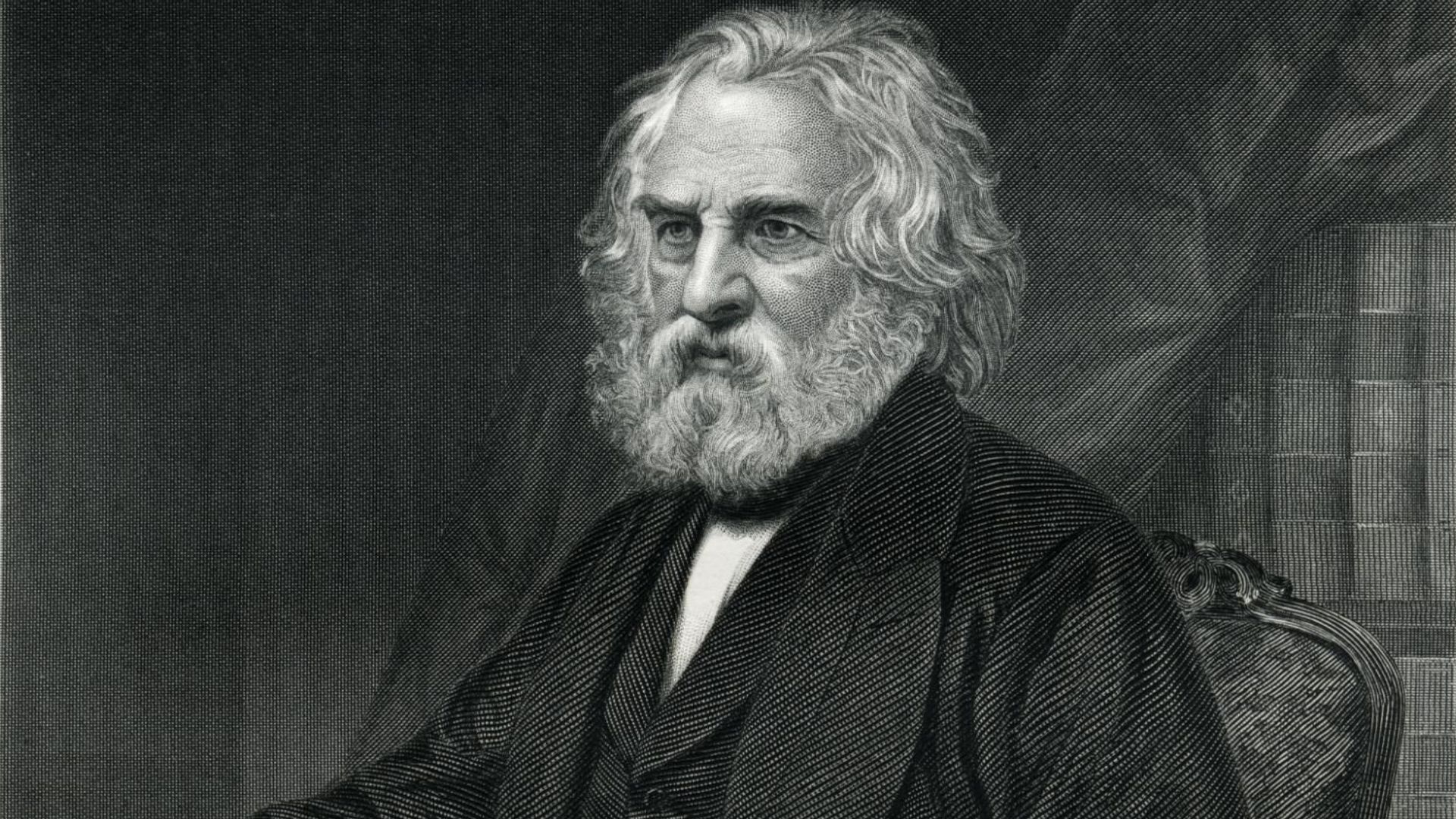Autumn Poem by Henry Wadsworth Longfellow
Autumn
Thou comest, Autumn, heralded by the rain,
With banners, by great gales incessant fanned,
Brighter than brightest silks of Samarcand,
And stately oxen harnessed to thy wain!
Thou standest, like imperial Charlemagne,
Upon thy bridge of gold; thy royal hand
Outstretched with benedictions o'er the land,
Blessing the farms through all thy vast domain!
Thy shield is the red harvest moon, suspended
So long beneath the heaven's o'er-hanging eaves;
Thy steps are by the farmer's prayers attended;
Like flames upon an altar shine the sheaves;
And, following thee, in thy ovation splendid,
Thine almoner, the wind, scatters the golden leaves!
wow! poem of the day is about autumn. it's burning hot where i am not. maybe it's reverse psychology so i will feel better.
Descriptive beauty about autumn season is grand in this beautiful poem!
Who are you responding to, Michael Harmon? You confuse the issue (whatever it may be) by the pseudo-scholarly citations you post verbatim from Harper and Lander! We are all impressed by your extended biography and its corollaries, as well as your B.A. in English Literature from Long Island University (1973) , OK? Are you in Straw's camp or not? I honestly cannot tell from your postings here or elsewhere (John Masefield's poem) !
Of course, a 'wain' may be likened to a 'caisson'! One definition of which may be Longfellow's meaning - 'a two-wheeled wagon for transporting ammunition' - appropriate for either Charlemagne or Patton!
TWO: HWL also reflects on the inevitability of death and the importance of cherishing life while it lasts. The poem encourages readers to appreciate the beauty of the world around them and to live life to the fullest
CONGRATS being chosen by PoemHunter and Team as The Classic Poem Of The Day. Most deserving poem!
ONE: The beauty and transience of life. It describes the changing of seasons from spring to autumn, and how the beauty of nature fades away with time. There is vivid imagery to describe the colours of autumn leaves, the sound of the wind, and the songs of birds.
Autumn, a beautiful season, my most favourite.5 Stars full. I have enjoyed very much
This poem has not been translated into any other language yet.
I would like to translate this poem
My interpretation of ‘Autumn’ by Henry Wadsworth Longfellow, is that the poem is a metaphor for the reign of Charlemagne, who was in the medieval mind, the finest example of what a Christian king could be. Therefore the autumn, before the descent after Charlemagne’s reign into medieval winter. The octave begins ‘Thou comest, Autumn, heralded by the rain, /With banners, by great gales incessant fanned’. This represents as ‘great gales incessant’ fanned, the fifty-three campaigns of Charlemagne, almost all of which he lead himself. The octave finishes with ‘Outstretched with benedictions o'er the land, /Blessing the farms through all thy vast domain! ’. Can anyone dispute that the octave is the establishment of Charlemagne’s ‘empire by conquering and Christianizing Bavaria and Saxony, destroying the troublesome Avars, shielding Italy from the raiding Saracans, and strengthening the defenses of Francia against the expanding Moors of Spain.’ The lines ‘Brighter than brightest silks of Samarcand, /And stately oxen harnessed to thy wain! ’ refer to Charlemagne’s last campaigns when he defeated and dispersed the Avars from 790-805. Finally in the thirty-fourth year of his reign at sixty-three years of age, he established peace throughout his kingdom. The European Avars were nomad warriors, which explains the oxen wagons, typical of ‘a highly organized nomadic confederacy’ of close knit tribes under a khagan, old Turkic for khan. The lines do not refer to Timur, commonly known as Tamerlane (1336-1404) . Samarcand in Russia is symbolic of the golden silk road, as the city occupied a central position on the Silk Road between China and the West. It became Islamic in 675 C.E. when taken by the Arabs. Longfellow is implying that Charlemagne was also on a golden road as a protector of Christianity. In 774 Charlemagne took Pavia, assumed the crown of Lombardy and ‘accepted the role of protector of the Church in all her temporal powers.’ ‘Outstretched with benedictions o'er the land’ indicates his success in this. Charlemagne took his role of a Christian protector seriously, after Saxons burned down a Christian church and made incursions into Gaul, he lead eighteen campaigns against them (772-804) . ‘Charles gave the conquered Saxons a choice between baptism and death, and had 4500 Saxon rebels beheaded in one day; after which he proceeded to Thionville to celebrate the nativity of Christ.’ This explains the sestet beginning ‘Thy shield is the red harvest moon, suspended /So long beneath the heaven's o'er-hanging eaves; ’. Charlemagne was the answer to ‘the farmer's prayers attended; ’. He not only protected them from pagan invaders but also ‘established a system of poor relief, taxed the nobles and the clergy to pay its costs.’ ‘Charlemagne struggled to protect a free peasantry against spreading serfdom’ which peasants were enslaved in during the winter of the medieval age after his rule. The sestet in conclusion celebrates Charlemagne great ‘ovation splendid’ both as the returning military hero who received enthusiastic support from his people. And as a great ruler who does not neglect his Christian duty to distribute alms to the poor. The ‘Thine almoner, the wind, scatters the golden leaves! ’ refers to his tax relief. Charlemagne as a great blessing showers a fortune upon the deserving poor. This poem as a seasonal metaphor and tribute to the reign of Charlemagne, is an amazingly accurate poetic piece of writing. An amazing poetic effort.